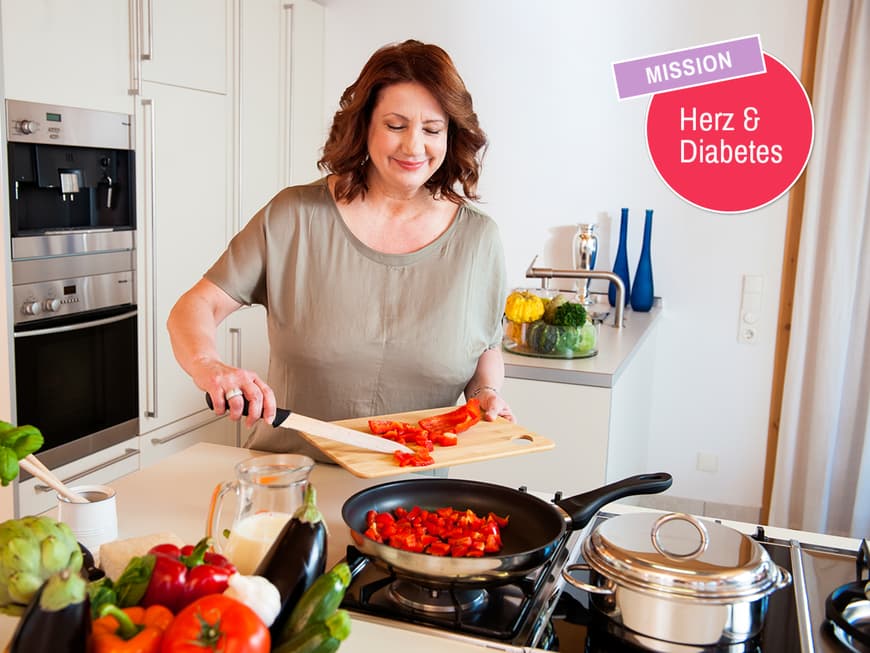
Conscious eating - what does that actually mean? First and foremost, it means that you are aware of what and how much you eat and when. It's about the way we prepare food, the composition of the individual ingredients and the amount of food we consume. But don't worry, you don't have to become a food expert who annoys family and friends with facts and figures about every meal. But a little study of the subject will help your health. This is true for healthy people and especially for people with type 2 diabetes.
Food and drink influence heart health
What you eat and drink also affects your blood sugar levels, blood pressure and, of course, your body weight. These factors play an important role in type 2 diabetes and therefore have a major impact on heart health. Did you know, for example, that people with type 2 diabetes have a significantly higher risk of suffering a cardiovascular disease than people without this metabolic disease? Heart attacks are one of the most common causes of death in people with type 2 diabetes.
To prevent this from happening, make diabetes a matter of the heart at an early stage! Get your blood sugar under control, exercise regularly, take the medication prescribed by your doctor as agreed and pay attention to your diet. The recommendations for healthy eating are largely the same for people with and without diabetes: whole grain products, lots of vegetables, preferably raw, salads and fresh fruit in moderation. If you eat a protein-rich diet, you can get by with fewer calories, because protein is pleasantly filling, lasts a long time and supports muscle building. Protein-rich foods include fish, dairy products, pulses, soy and chicken eggs. On the other hand, you should eat less of the following foods: White bread, bread rolls and other white flour products, sweets, canned foods, fast food and ready meals. Be very cautious with fatty meat and high-proof cheese. Drinks containing alcohol should not be used as thirst quenchers, but should only be consumed as a stimulant in exceptional cases.
One and a half liters of low-calorie drinks a day
Two things are particularly important: drink at least one and a half liters of low-calorie drinks every day. And pay attention to the right proportions of different foods. The German Nutrition Society (DGE) has developed a so-called nutrition circle (LINK). It shows which parts of the diet should be made up of which types of food. The recommendations apply regardless of whether someone has diabetes or not.
Approach dietary changes in stages
Let's not kid ourselves: If you've always liked sweets, love sausage rolls and have firmly planned to have a slice of cake at the weekend - the change is no walk in the park for you. Take small steps. For example, start by skipping the potato chips with your favorite TV series and eating a little fruit instead. This will gradually bring a healthy balance to your diet.
It makes sense to talk to your doctor about nutrition. They will either make individual dietary recommendations themselves or recommend appropriate experts, such as a nutritionist. The doctor can also inform patients with type 2 diabetes about what else they can do to actively promote their heart health in addition to a healthy diet.
In the fourth part of the "Heart & Diabetes" series, you can read how to strengthen your soul and feel better.






